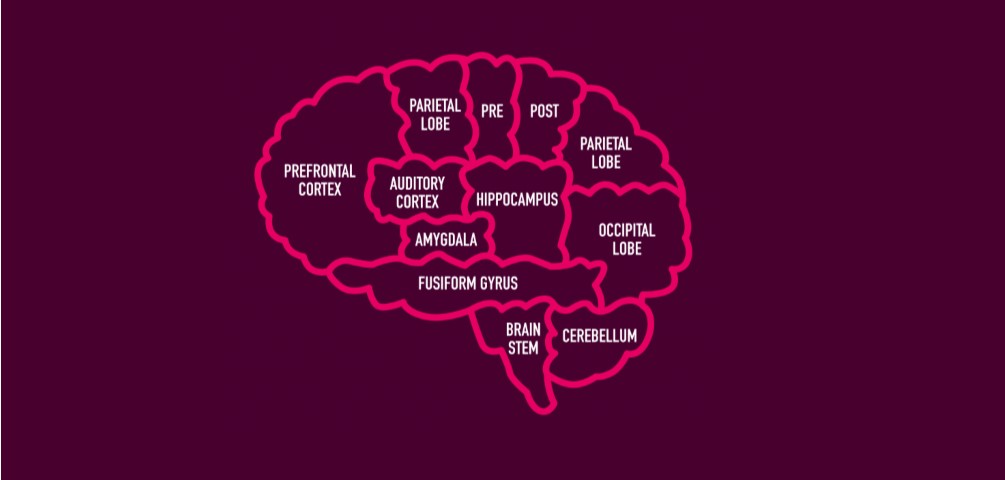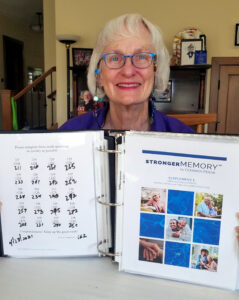
Live Vibrantly - June 18, 2020
by Amanda Ranowsky

For Goodwin Living President & CEO Rob Liebreich, the fight against dementia is personal.
In 2011, Rob and his family noticed that his mother, Wendy, started repeating herself and forgetting recent conversations. Her ability to focus was challenged, she was losing her math skills and she would lose her way while driving. Rob’s mother was showing signs of what experts call “mild cognitive impairment.”
According to the Mayo Clinic, mild cognitive impairment (MCI) is defined as “the stage between the expected cognitive decline of normal aging and the more serious decline of dementia.” The Alzheimer’s Association reports 15 to 20% of those over age 65 have MCI – upwards of 10 million people in the United States – and that 38% of individuals with MCI develop dementia after five years. “I want to do everything I can not to lose you,” Rob’s mother said to the family. Now they just had to find a solution.
Working in the field of senior living and care, Rob hoped he’d have an easier time finding ways to treat MCI. His search yielded the same results many encounter when they or a loved one receive such a diagnosis – no answer and no prescription for recovery.
There is no cure for MCI. For those who progress into dementia or Alzheimer’s, some symptoms – namely memory, confusion and thinking skills – can temporarily improve or stabilize with certain drugs, but pharmaceutical options are not helpful for all patients. While researchers around the globe continue to search for a cure, currently there are no drugs that can stop the progression of dementia or Alzheimer’s. MCI has no standard treatment whatsoever. Those who suffer from it are generally advised to make efforts to stay healthy and to hope for the best.
Hoping for the best wasn’t good enough for the Liebreich family. They wanted help, even if there was no cure. Their luck changed the following year. While taking part in a LeadingAge conference for non-profit senior living organizations, Rob attended a session that would change his – and his mother’s – lives.
The session reported on a program used by individuals with advanced dementia who participated in simple activities that triggered greater brain activity in the prefrontal cortex. Research has shown that engaging the prefrontal cortex can help us stabilize and even improve cognitive function as we age.
“At the time, my mom was showing signs of some mild cognitive decline,” Rob explained. “Though she was still able to function independently in her daily tasks, she was repeating herself and not remembering everything.” Rob wondered what might happen if someone with mild cognitive changes started engaging regularly in simple activities that engage the prefrontal cortex.
“I asked my mom to take a leap of faith with me,” Rob continued. “I asked her to commit to engaging in simple mental exercises that involved basic math, reading and writing for a minimum of 30 minutes each day. The goal was to enhance recall and processing, which is associated with the prefrontal cortex of the brain.”
Rob’s mother, Wendy, enrolled in simple math courses and began practicing writing and reading out loud every day. Within a month, Wendy and her family could tell her symptoms had lessened. She wasn’t repeating herself nearly as often, and her memory became sharper. After three months, her math skills improved, along with her ability to focus. She has continued her commitment to daily mental exercises, and in the years since she began this steady practice, Wendy has been able to pick up new skills like learning to play Mahjong, birding and playing better Bridge.
Seeing the incredible effects these simple exercises had on his mom, Rob wanted to develop a program that could be used at the senior living community where he was working at the time in Seattle. Unable to to find an existing program that they could use, Rob wondered if there might be a way to build on what they learned from his mother’s experience.
“We decided to develop our own curriculum focused on older adults with mild cognitive impairment or early signs of dementia, and the effort worked,” said Rob. “We engaged a former teacher who was focused on occupational therapy to help develop a program. If we could give people like my mom more time to build memories with their loved ones – that would be a great achievement.”
When he came to Goodwin Living, Rob brought the wealth of knowledge he had collected to develop his own curriculum, built on feedback from his mother and the three practices that research confirmed could help brain function: simple math done quickly, reading out loud and writing longhand. He called the new program StrongerMemory.
Goodwin House Alexandria and Goodwin House Bailey’s Crossroads began recruiting participants for a small pilot program of StrongerMemory in late 2019. With supervision from our social workers, participants started the program in January 2020. At least four days a week (though ideally every day), participants would spend 20 to 30 minutes engaging with the simple math exercises, writing longhand and reading out loud. By April, many of the participants saw improvements.
“Many don’t realize how important it is to focus your brain for 20 minutes per day, and how additive it could be for improving brain function,” Rob said. “Similar to what we experienced with my mom, many of our pilot participants noted improvements in their focus and enjoyed the ability to use this curriculum for added structure in their day.”
Having observed many participants over the years, Rob noted a few tips and tricks that helped participants get the best results with the StrongerMemory program.
When it comes to math, the idea is ‘simple math done quickly’, with as little anxiety as possible. It’s not about getting the answer right, either. There is no wrong answer. Instead of moving beyond a level that feels comfortable, participants are encouraged to repeat the same math sheets over and over, or find new problems of a similar level. Rob’s mother experienced a small setback when she started doing division problems for her math exercises. She had been finding the simpler math problems easy and wanted to challenge herself. Not long after she started the more challenging math exercises, she found herself forgetting more and experiencing some of her old symptoms. As soon as she went back to working simpler math problems, the symptoms retreated yet again.
The goal is to build StrongerMemory into a program that can serve the wider community. “I’d love to create enough new worksheets to be able to send out a new curriculum every week,” he said. “I want to build a community that works together to fight the progression of these debilitating diseases.”
Thanks to the generosity of the Liebreich family, Goodwin Living has been given the opportunity to share a free sample of the StrongerMemory program to the public. The 11-packet curriculum includes math sheets, writing prompts and reading suggestions. “This is not about the flexibility of the brain to learn new,” Rob reminds. “This is about tapping into something familiar that most people learned in their childhood.”
With the support of a loved one to help keep users of the program on track, Rob hopes many people dealing with MCI will now be able to follow the StrongerMemory program. “It’s really hard to get people to do something that’s simple, consistently,” he said. However, with his mother’s experience at the front of his mind, Rob envisions StrongerMemory helping many people slow the symptoms of cognitive decline and gain more “good” years.
Watch this video to see Wendy Liebreich share her tips for doing the StrongerMemory exercises.
You can download our StrongerMemory Workbook or purchase a printed copy at this page.
Questions, feedback, or want to get involved? Contact us at StrongerMemory@goodwinliving.org.
————————————-
As Marketing & Communications Specialist, Amanda Ranowsky partners with colleagues throughout Goodwin Living to tell our stories and raise brand awareness. From printed collateral to digital marketing, Amanda covers many bases. Before joining GHI, Amanda worked for a small, family-owned business where she gained experience in content marketing. Amanda’s creative expression extends beyond the office. She is an active member of community theater and chorus groups.
